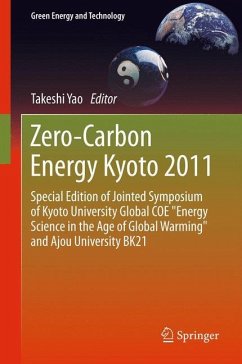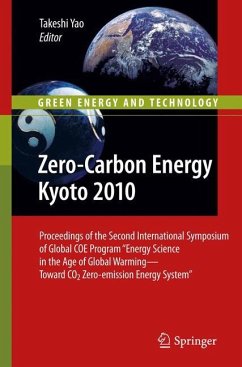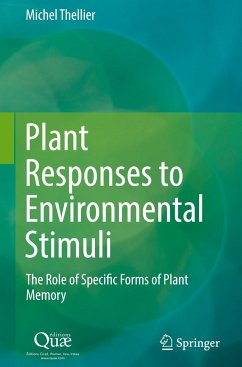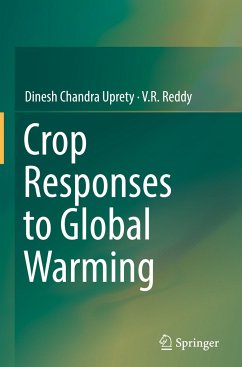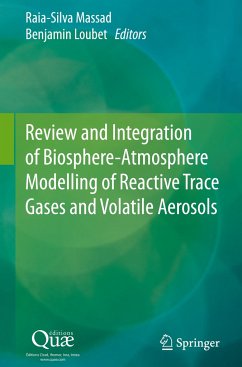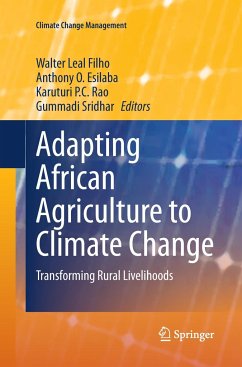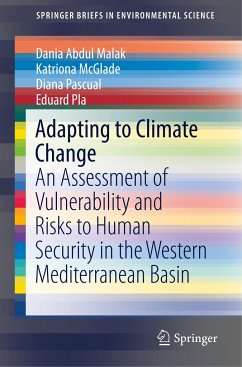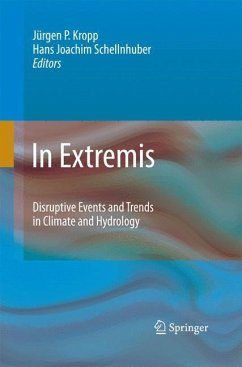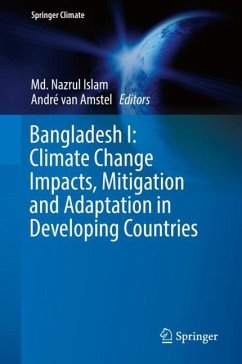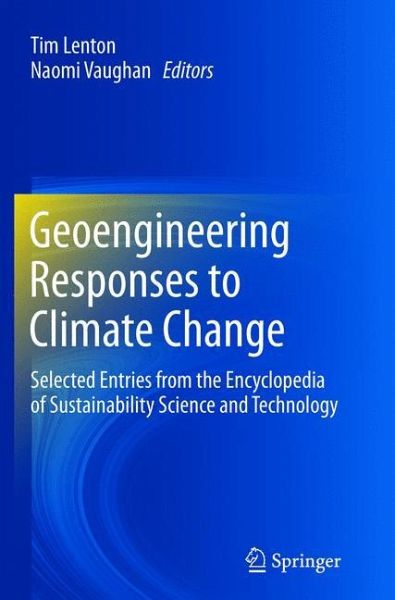
Geoengineering Responses to Climate Change
Selected Entries from the Encyclopedia of Sustainability Science and Technology
Herausgegeben: Lenton, Tim; Vaughan, Naomi
Versandkostenfrei!
Versandfertig in 6-10 Tagen
76,99 €
inkl. MwSt.

PAYBACK Punkte
38 °P sammeln!
How could geoengineering technology help to limit the impact of global warming? This collection of papers from Springer's Encyclopedia of Sustainability Science and Technology examines techniques varying from carbon sequestration to solar radiation management.
Failure by the international community to make substantive progress in reducing CO2 emissions, coupled with recent evidence of accelerating climate change, has brought increasing urgency to the search for additional remediation approaches. This book presents a selection of state-of-the-art geoengineering methods for deliberately reducing the effects of anthropogenic climate change, either by actively removing greenhouse gases from the atmosphere or by decreasing the amount of sunlight absorbed at the Earth's surface. These methods contrast with more conventional mitigation approaches which focus on reducing emissions of greenhouse gases, especially carbon dioxide. Geoengineering technologies could become a key tool to be used in conjunction with emissions reduction to limit the magnitude of climate change. Featuring authoritative, peer-reviewed entries from the Encyclopedia of Sustainability Science and Technology, this book presents a wide range of climate change remediation technologies.





